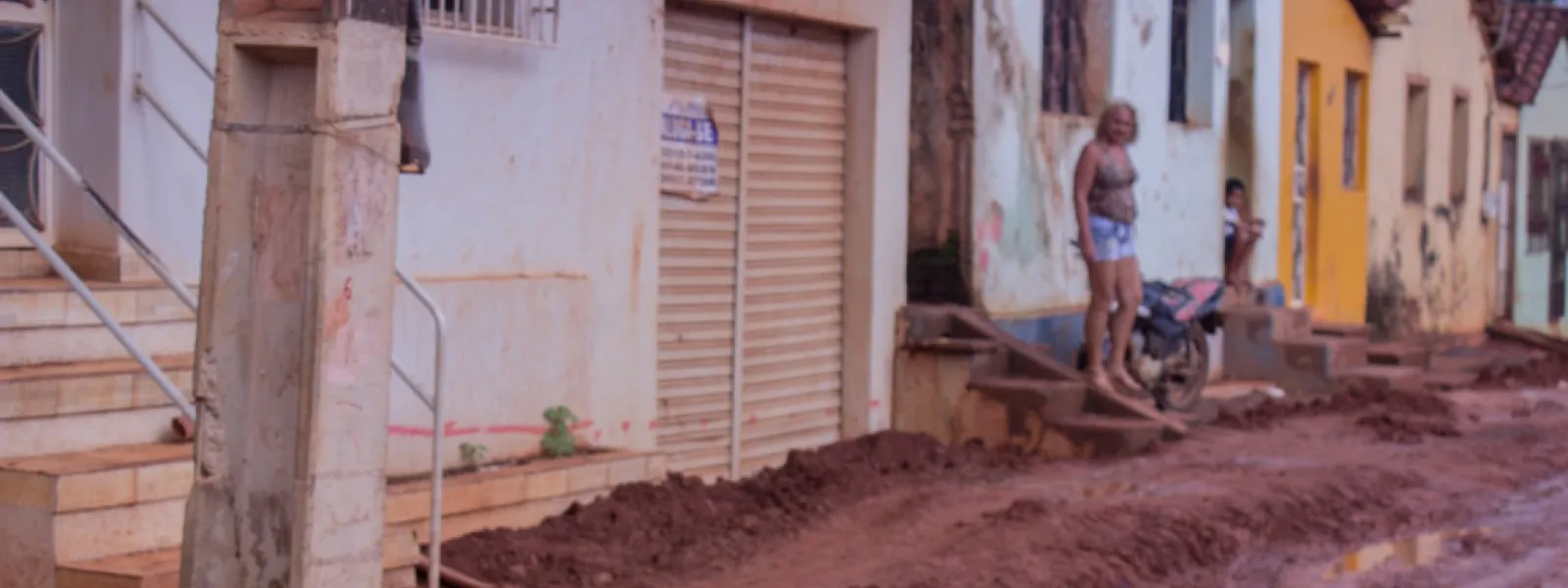
Project
Photo: Maíra Irigaray / Amazon WatchHolding Brazil accountable for the Belo Monte Dam
When fully operational, Belo Monte will be the third-largest dam in the world, constructed in one of the most important ecosystems on the planet: the Amazon rainforest. It sits on the Xingu River in Pará, a state in northern Brazil. The reservoir will cover 500 square kilometers of forest and farmland—an area the size of Chicago.
For the people of the Xingu, construction of Belo Monte has meant loss of access to water, food, housing, work and transportation. At least 20,000 people have been displaced.
The government and construction consortium began to construct the dam without first consulting the people of the region, many of whom are indigenous. They flouted international human rights law, which requires the free, prior and informed consent of affected indigenous communities. Brazil also failed to comply with precautionary measures issued by the Inter-American Human Rights Commission, which were intended to protect the life, health, and integrity of local communities.
Though Belo Monte began operations in May 2016, it is not yet operating at full capacity. In April 2016, a federal court suspended the dam's operating license because the consortium in charge did not complete basic sanitation works in Altamira, the city nearest to and most affected by the dam.
Partners:
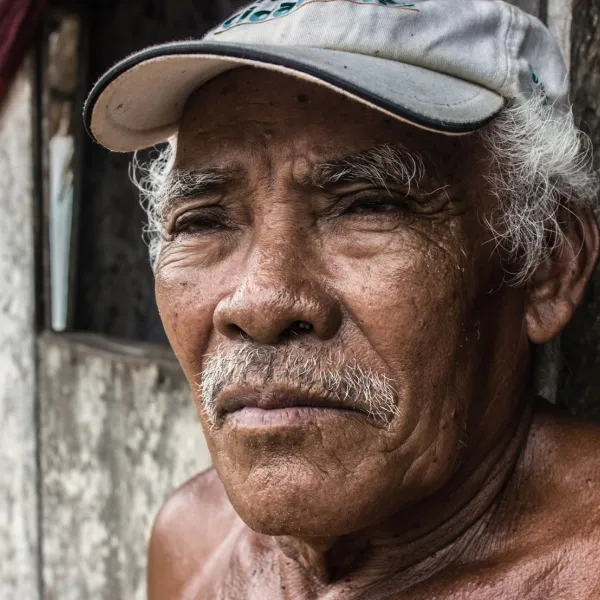
Related projects
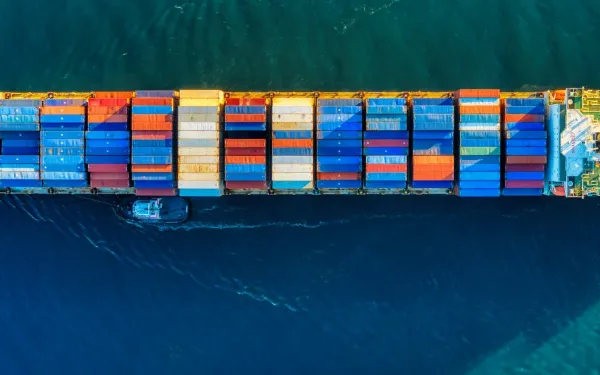
Maritime shipping: what’s being done to reduce emissions?
Maritime transport is the activity of moving goods from one destination to another by sea. It is fundamental to trade and accounts for 80% of global shipping.However, it is also a major source of pollution, particularly greenhouse gases that warm the planet and other pollutants that harm human health.The sector therefore needs to decarbonize its activities by reducing its emissions, both in transport and in the loading and unloading of goods at ports around the world. How many emissions does international shipping produce?Every year, 10 billion tons of cargo are transported by sea, accounting for 2.9% of global greenhouse gas emissions - including carbon dioxide (CO₂) - a percentage close to that of Japan. This is because ships use enormous amounts of oil to move, emitting nearly 1 billion tons of greenhouse gases.The above figures do not include emissions generated at cargo ports, which are not automated and use fossil fuels. The main energy source for ships moving goods around the world is heavy fuel oil, a highly polluting fossil fuel that produces CO₂ emissions that accelerate global warming.In 2023, greenhouse gas emissions from shipping will be 20% higher than they were 10 years ago, according to the United Nations. And projections published by the European Environment Agency indicate that they could reach 17% of global emissions by 2050 if no action is taken to decarbonize the sector.The warming and subsequent melting of the Arctic - the geographic region around the North Pole - is evidence of the impact of shipping emissions on the global climate:According to the Clean Arctic Alliance, the Arctic —one of the world's most important climate regulators— is warming up to four times faster than the rest of the planet.Much of this is due to emissions of black carbon, or soot, from shipping, which is the residue left after heavy fuel is burned on ships.Black carbon is emitted in both gaseous and solid forms. As a gas, it contributes to the greenhouse effect in the atmosphere; as a solid particle, it accelerates the melting of snow and ice. How do ship emissions affect human health?International shipping generates pollutants such as black carbon and particulate matter that affect human health.According to the Barcelona Institute for Global Health, which reviewed 32 studies on shipping emissions, the industry could be responsible for an estimated 265,000 premature deaths worldwide in 2020. This means that 0.5% of global mortality would be associated with its emissions.Although air pollution from shipping is a global problem, it disproportionately affects coastal populations, especially those living near ports and other industrial facilities. Who is responsible for preventing emissions from shipping?The International Maritime Organization (IMO) is the specialized agency of the United Nations responsible for setting standards for safe, efficient, and environmentally sound shipping. In 2023, the 175 countries that make up the IMO agreed to reduce greenhouse gas emissions from industry by 20-30% (compared to 2008) by 2030 and by at least 70% by 2040. The pact is complemented by a target to achieve a zero emissions balance (so that gases released into the atmosphere are neutralized or offset by sinks) by "around 2050."Within this framework, meetings at the IMO in the coming months and until April 2025 will focus on achieving the decarbonization of shipping through a just energy transition.During this period, a range of technical and economic measures will be analyzed and discussed to achieve the objectives of the Ship Emissions Reduction Strategy.The main challenges of these efforts include:Meeting market demand for zero emission fuels in the volume required to power the entire global marine fleet.Bridging the cost gap between fossil fuels and low-emission fuels.Enabling ships to adapt their technology for a rapid transition to cleaner fuels. The process of decarbonizing maritime transport will require the combined efforts of various actors: States, companies, NGOs, and international governance organizations.It is a complex process that involves the entire global shipping chain. For the decarbonization of the sector to be equitable, it is necessary to take into account shared responsibilities as well as the different needs and capacities of countries in the face of the costs of phasing out fossil fuels in maritime transport.It must also consider the impact that global warming is already having on economically and climatically vulnerable countries, such as islands, least developed and developing countries.Sources- International Maritime Organization, "Introduction to the IMO".- Natalie Mueller, "Maritime transport: the forgotten pollution", Barcelona Institute for Global Health.- Michelle Carrere, "Agreements to reduce shipping emissions considered ‘weak’ by environmental organizations", Mongabay.-Paula Mateu, "Maritime transport will reduce emissions by 30% in 2030 but NGOs see it as insufficient", La Vanguardia.
Read more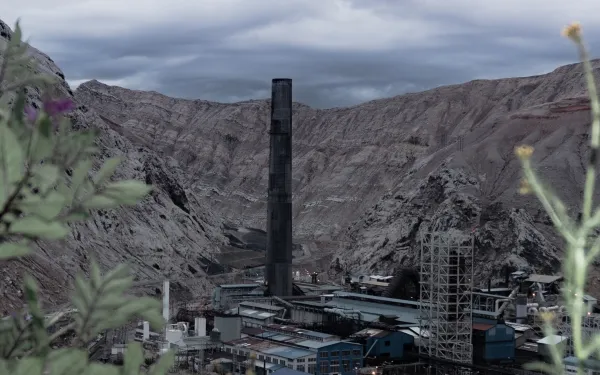
Warning of increased contamination in La Oroya and slow progress by the State to comply with the Inter-American Court ruling
The State's progress in implementing the international court's ruling has been slow and insufficient. Meanwhile, a high level of sulphur dioxide has recently been registered in the Andean city due to the partial reactivation of the metallurgical complex and the lack of prevention, warning, monitoring and control measures by the state. Two months after the Inter-American Court of Human Rights issued its ruling in the case "La Oroya Community vs. Peru," the Inter-American Association for Environmental Defense (AIDA) and the Pro Human Rights Association (APRODEH), organizations that legally represent the victims, warned at a press conference that the Peru is making slow and insufficient progress in effectively complying with the ruling.The ruling, issued on March 22 and considered a landmark in international law, established Peru’s responsibility for violating the rights of La Oroya residents affected by decades of toxic contamination.The international tribunal ordered comprehensive remedial measures, including environmental cleanup, reduction and mitigation of polluting emissions, air quality monitoring, free and specialized medical care, compensation, and a resettlement plan for the affected people. Increased pollution in La OroyaThe organizations also denounced that the government’s slow action is occurring in the midst of an increase in the presence of toxic contamination in the area due to the partial reactivation of the La Oroya Metallurgical Complex and the lack of prevention, warning, monitoring and control measures by the state.According to the Environmental Monitoring System of the Environmental Evaluation and Control Agency, a high presence of sulfur dioxide has recently been recorded in La Oroya, which makes it imperative that Peru take urgent action based on its international responsibility.One of the measures ordered by the Inter-American Court is to ensure that the operations of the La Oroya Metallurgical Complex comply with international environmental standards, preventing and mitigating damage to the environment and human health. Challenges in implementing the rulingDuring the press conference, Rosa Peña, Senior Attorney for AIDA's Human Rights and Environment Program, said: "The ruling is a great opportunity for the State of Peru to prevent and better manage the environmental impacts of mining and metallurgical activities, as well as to improve health care for people exposed to contamination. The Court has already identified the key aspects, now it is up to the State as a whole to ensure a good implementation that will serve as an example for other cases at national and international levels."Christian Huaylinos, coordinator of the legal sector of APRODEH, emphasized the need for an articulated multisectoral work: "A coordinated effort of the three levels of the state—local, regional and national—is needed to advance in the effective compliance of the sentence. In addition, clear mechanisms must be put in place to ensure the effective participation of victims in the implementation of the orders issued by the Court." Community demandsYolanda Zurita, a petitioner in the case, emphasized the community's frustration with the lack of prompt and effective action: "We, as a population, need to feel and see that there is compliance. It is not possible that after 20 years of litigation, and after the Court's ruling has been made public, there are officials who claim to be ignoring the ruling."The Inter-American Court's ruling not only focuses on reparations for direct victims, but also includes restitution measures and guarantees of non-repetition for the entire population of La Oroya and the country. It defines parameters for the proper conduct of mining and metallurgical operations in Peru, in defense of the environment and health.The ruling is an important precedent for the protection of the right to a healthy environment in Latin America and for adequate state oversight of corporate activities.AIDA and APRODEH urge the Peruvian government to comply with the measures ordered by the Inter-American Court and to take immediate action to protect the environment and health of the community of La Oroya.Press contactVíctor Quintanilla-Sangüeza (Mexico), AIDA, [email protected], +52 5570522107
Read more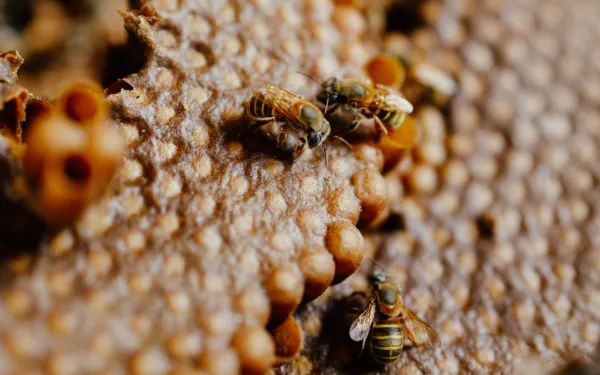
Native bees and indigenous peoples: an ancestral bond
Did you know that there are bees native to our continent that have been part of the cosmovision and way of life of various indigenous peoples? The native bees or Melipona beesbelong to the tribe of the Meliponini. They are known as "stingless bees" because they do not have a functional stinger, although they have other defense mechanisms, such as biting. There are dozens of species of these bees found from Mexico to Argentina. In some indigenous communities, native bees are considered spiritual and symbolic beings, but they are also valued for their essential functions in sustaining life: by pollinating crops, they are allies in food production; their honey, wax, and propolis have recognized nutritional and healing properties; and they maintain the balance of nature for the conservation of ecosystems. As part of World Bee Day—celebrated every year on May 20 to raise awareness, promote and encourage actions to protect bees and other pollinators—we would like to highlight the work of some communities that honor and care for native bees in a variety of ways, and in doing so, care for and preserve their own cultures. A work of mutual care The breeding and use of melipona bees, native to the Americas, is an ancestral practice for several indigenous peoples. This activity, called meliponiculture, is part of their way of life and worldview. The introduction of the domestic bee (Apis mellifera) from Europe drastically reduced this practice. However, many communities have preserved it, protecting native bees from extinction and ensuring biodiversity in their territories. We have examples of this across the continent. Guatemala The warm forests of Alta Verapaz, Guatemala, are the preferred habitat of native bees and are home to the greatest diversity of bees in the country. Their conservation is in the hands of Q'eqchi Mayan families and small producers who build technological hives or "bee houses." Peru Through her Sumak Kawsay initiative, Ysabel Calderón is promoting the conservation of native bees by restoring their habitat in Lambayeque, Peru. Calderón has planted more than 1,000 trees in Lambayeque and increased the native bee population. This has also created jobs for a group of women in the region. Argentina In Argentina's Gran Chaco, Silvia Godoy and other small-scale honey producers are recovering native bee nests in sawmills that have been lost to forestry activities. The colonies are carefully placed in boxes for better conservation and rational use of their honey. Colombia Yucuna women from the Mirití-Paraná region of Colombia are working to document the origins of native bees in their culture and their importance to the territory and the environment. They are doing this hand in hand with the wise grandmothers and grandfathers of the villages. They collect stories, songs and drawings about bees. MExico About 20 years ago, Nahua families in Cuetzalan del Progreso, Mexico, began promoting meliponiculture as an ancestral practice that was being lost. Today, honey harvesting benefits the families economically and allows them to protect their territory. And in southeastern Mexico, the Colectivo de Comunidades Mayas de los Chenes has put native bees at the center of its fight against GMOs and agrotoxins. The women's voice and the protection of meliponiculture, a traditional practice and their livelihood, have been key to defending their territory. SOURCES -S. Engel, M. et al. “Stingless bee classification and biology (Hymenoptera, Apidae): a review, with an updated key to genera and subgenera”, ZooKeys. -Practical guide for the implementation of meliponiculture in the Colombian Amazon, Amazon Conservation Team/The Nature Conservancy, 2020. -Importance of meliponiculture", General Directorate of Natural Resources and Biosecurity. -"Native bees of Mexico. The importance of their conservation", Conacyt.
Read more